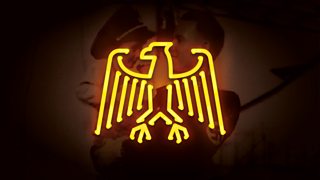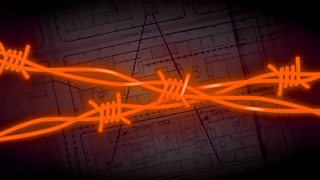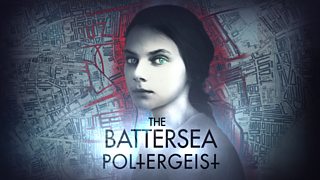Why did the Nuremberg trial happen?
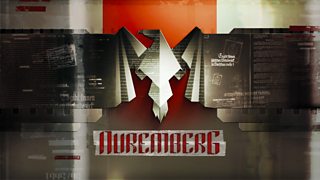
Radio 4's Nuremberg tells the entire story of the trial of the most notorious Nazi war criminals through dramatic reconstruction, telling it from ground-level up, through the eyes of a Russian interpreter, the American prison psychologist, a French reporter, the British Court Liaison Officer and others from the thousands of individuals tasked with fighting "the last battle of WWII".
Writer and director Jonathan Myerson explains the background to the ground-breaking trial which established new principles on war crimes and culpability.
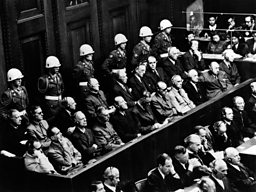
Omnishambles
When Imperial Germany collapsed at the end of the First World War, the Allied attempts to prosecute war crimes could, at best, be described as an omnishambles. The Kaiser fled to the Netherlands and the Dutch refused to extradite him. A few German officers were indicted only to be set free by their prison guards and greeted outside by flowers.
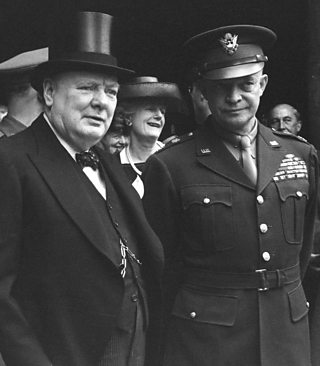
No-one quite knew how to deal with a defeated nation in the modern age.
That’s why, long before the German surrender in May 1945, the Allies knew they had to be better prepared. Initially, plans centred on the illegality of starting unprovoked wars and the known war crimes – a Waffen SS Division, for instance, had machine-gunned US POWs during the Battle of the Bulge.
But as the Allied armies pushed into Germany and found the Nazi concentration camps, prosecutors realised there were crimes on a scale (quite literally) beyond imagining. And these crimes had been authorised and organised right from the top.
No rules
Not that another omnishambles didn’t almost unfold amidst the wreckage of a defeated Germany. Reichsmarshall Hermann Goering surrendered himself to the US Army (along with 16 matching monogrammed suitcases, varnished nails and a valet) and was fêted with a champagne press conference. Eager journos prompted him for his plan to rebuild Germany and GIs posed for photos with arms round shoulders. Suffice to say, Supreme Commander Eisenhower went ballistic.
Meanwhile up in Flensburg, near the Danish border, Hitler’s named successor Admiral Doenitz, has established a new German government and British investigators were saluted by SS Guards on their way in to speak to his "ministers".
In other words, no-one quite knew how to deal with a defeated nation in the modern age.
There were no rules: since Napoleon, it was understood that politicians or kings were not personally culpable for the actions of sovereign states.
This time, for the top hundred Nazis, Prime Minister Churchill favoured "drum-head" courts martial speedily followed by firing squads.
There was a genuine fear that a "proper" British trial would give Hitler or SS chief Heinrich Himmler (both then possibly alive) and Goering or Hess one more chance to spout their fanatical, anti-Semitic theories.
Justice must be done
But the Americans were adamant: these crimes had to be laid out, in detail, in open court. And what’s more, the Allies had a duty to demonstrate the values for which they had just fought a six-year war. If the courtroom turned into a propaganda battle (and Goering would certainly give it his best shot), then so be it. Justice, genuine democratic justice, must be done.
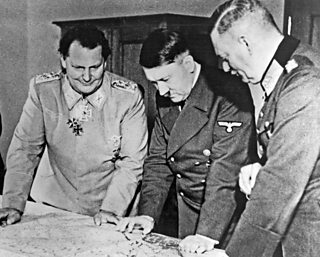
But what do you charge them with? And is it fair to charge them with crimes which were not even on the statute book at the time they were committed (what lawyers like to call ex post facto)? As Robert H Jackson, Chief US Prosecutor, put it: “Let’s not be derailed by legal hair-splitters. Murder, torture, enslavement – these are crimes recognised by all civilised peoples... since the time of Cain.”
In fact, Jackson was determined to show that the entire Nazi enterprise arose from a conspiracy right from the very start. Only one problem: two of the prosecuting nations, France and the USSR, had no law of conspiracy.
Industrial-scale murder
And what on earth is the charge for the deliberate, industrial-scale murder of millions? That’s how the Nuremberg Trial came to put two expressions into the English Language: "Genocide" had already been coined by jurist Raphael Lemkin but now it found its moment. And "Crimes Against Humanity" also entered the indictment alongside War Crimes and Crimes Against Peace.
But there were still many tense and tortured negotiations (mostly at Church House in Westminster) before the four charges were agreed, before the venue was determined (the Russians adamantly wanted Berlin but the city was in ruins, whereas the courthouse in Nuremberg had miraculously survived Allied air raids), and before the 24 defendants were named.
Just six months after VE Day, the International Military Tribunal opened on 20 November, 1945 and something genuinely remarkable had been achieved. Four nations had come together to create an international court, with new international legislation, using a hybrid procedural system, in order to show that they stood for justice and the rule of law.
Sadly, by the time the trial closed on 1 October, 1946 the Cold War was under way and the court would not sit again until 1993 in The Hague.
-
![]()
Nuremberg
Experience the trial of the most notorious Nazi War criminals through the epic podcast series. Starring Natalie Dormer, Freddie Fox, Kate Phillips, Alex Kingston, Ed Stoppard and Henry Goodman with a company of 25 actors.
Compelling prodcasts on Radio 4
-
![]()
The Ratline
Philippe Sands investigates the mysterious disappearance of senior Nazi Otto W盲chter in a story of love, denial and a curious death.
-
![]()
Tunnel 29
Helena Merriman tells the extraordinary true story of a man who dug a tunnel right under the feet of Berlin Wall border guards to help friends, family and strangers escape.
-
![]()
Mayday
Mayday: When James Le Mesurier fell to his death he left behind a tangle of truths and lies.
-
![]()
The Battersea Poltergeist
A paranormal cold case, re-investigated through a thrilling blend of drama and documentary.
